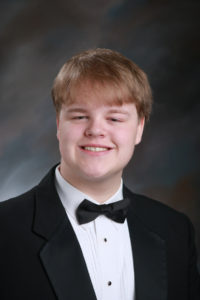
DeSales High School
There is a phenomenon in the psychology field called the Dunning–Kruger effect. It is a model for overconfidence; it says that at the beginning of exposure to something, you have nothing but confidence; “I am the best at this!” Then, after reality sets in, you lose practically all of that confidence; “I am actually…terrible at this.” Finally, after enough time with something, you can safely say, “I truly am good at this, and I know my limitations.”
I am extremely grateful that my time with DeSales High School can be modeled this way almost to a tee.
First, let’s step back to when I first stepped into high school.
DeSales High School, like most other Catholic schools, is heavy on tradition. On the first day of freshman year, one enters DeSales through the double-doors at the facade of the building. You don’t exit those doors until Graduation Day, some four years later.
As I walked in, I told a good friend, “Watch these four years be a piece of cake.”
It didn’t take long — maybe a few weeks — for freshman Jacob to choke on that cake.
A Catholic education has rigor. It is tough because it has to be, and it is strict because it needs to be. As most of us freshmen quickly found out, the rigor of our former grade-school education was nothing compared to that of a Catholic high school.
Low letter grades drowned my report card. Red ink-covered more of my papers than my writing did; there was that second stage of the Dunning–Kruger effect — “This is much harder than I thought…” — in action.
It was then that the ultimate aspect of the Catholic education system revealed itself in the willingness of every teacher to give their all for the students’ betterment.
Following a bad test grade, my teacher gave up their free time — an invaluable resource for an already busy math teacher — after school for an hour and a half to make sure I understood what was going wrong. My counselor and other teachers checked in with me if I needed them. Teachers really made sure I got all the help I needed.
I felt something then that I never had during my other eight years of learning — I felt genuinely wanted. And that feeling never went away.
Now, years later, my relationship with my instructors is as strong as ever. Some days, I find myself accidentally staying after for an hour to discuss world religion or to debate the Bush v. Gore (2000) Supreme Court ruling, among countless other discussion topics. These are moments I cherish and will continue to cherish for as long as I live.
God showed Himself in my education through the great help I received from my teachers. God helped me to get where I truly belonged — at the top of that Dunning–Kruger curve.
“I truly am good at this, and I know my limitations.”
